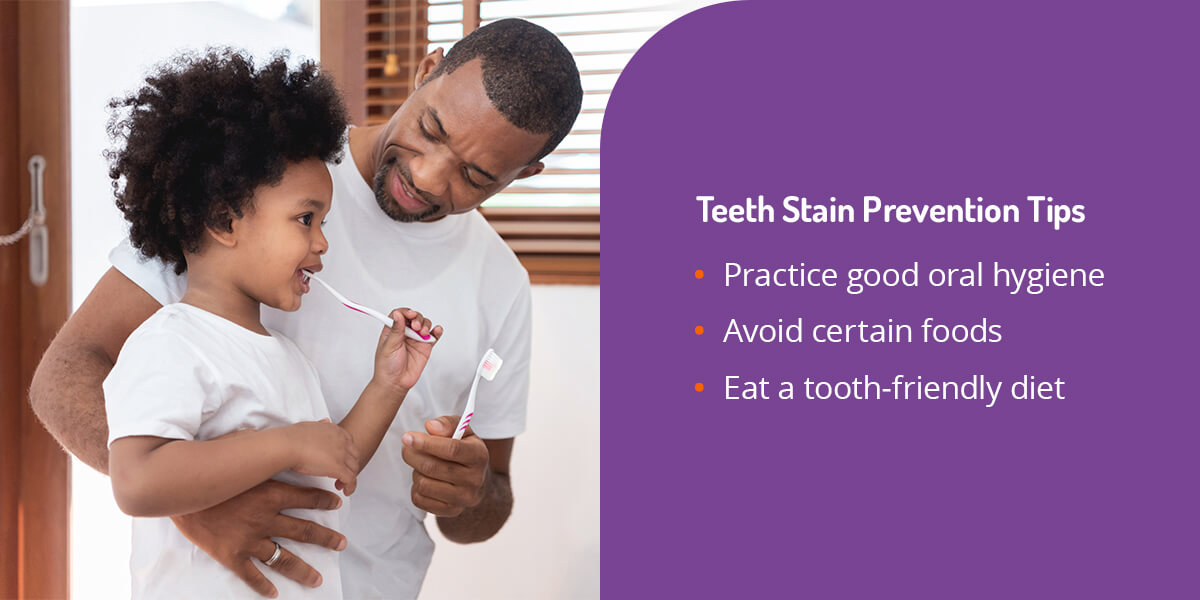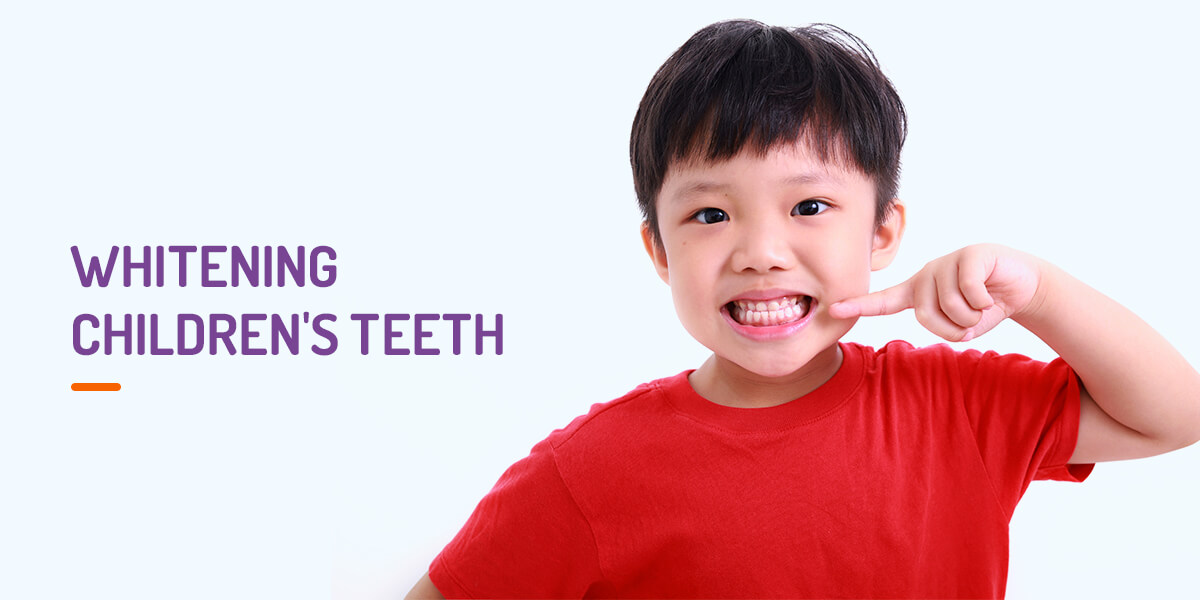Your child’s smile is one of the happiest sights to see. It shows they are having fun and enjoying the moment. But you also want them to feel confident when they smile, and yellow, discolored teeth can cause them to lose some of their self-esteem around their peers.
Call to Schedule An Appointment
If your child has yellow teeth, you may ask, “How do I get rid of my child’s yellow teeth?” “At what age can you whiten teeth in children?” We’re here to answer these questions and more so you can ensure your child has a confident, radiant smile.
Why Are My Child’s Permanent Teeth Yellow?
Several potential reasons exist for your child’s tooth discoloration. Understanding why your child’s teeth are yellow is the first step to figuring out how to correct the issue and prevent any further discoloration. Here are some factors that can contribute to this problem.
- Adult teeth: One of the most common reasons a child’s teeth start turning yellow is that some of their adult teeth have started erupting. Adult teeth are permanent and come in after a baby tooth has fallen out naturally. These adult teeth have a higher amount of dentin than baby teeth, which causes them to appear yellow compared to the generally whiter appearance of baby teeth.
- Staining foods: Dark-colored foods and drinks with dyes will stain teeth over time. Soda, tea, ketchup, some candies and cakes are all items that could have dark colors contributing to your child’s yellow teeth.
- Weak enamel: Weak enamel is a genetic issue that can cause teeth to have a discolored appearance.
- Injury: Tooth trauma or nerve damage can lead to broken blood vessels, causing teeth to appear yellow or off-white.
- Tooth decay and poor oral hygiene: According to the American Dental Association, tooth decay, also known as cavities or dental caries, is a leading contributor to yellowing teeth. Poor oral hygiene will allow cavities to develop and teeth to turn yellow. Without intervention, the discoloration issue will only get worse.
Can I Whiten My Kid’s Teeth, and Is It Safe?
The good news is that there are ways to whiten your child’s teeth. But before you head to the local drugstore to find the first tooth-whitening product you see, you need to do your research. Using the wrong whitening treatment or neglecting to consider your child’s needs and dental limitations can lead to unintended consequences.
First, schedule a meeting and talk to your child’s pediatric dentist to discuss the correct teeth whitening solution for your child. A pediatric dentist will know which whitening treatment products or home techniques will have the best result and complement your child’s current oral hygiene regimen. Every child is at a different place with their oral health, and you want to use the safest methods for the best results.
Often, pediatric dentists recommend avoiding commercial whitening products for children, especially if the child still has some of their baby teeth. These products may contain more aggressive ingredients that can cause increased tooth sensitivity and weakened enamel. These conditions can lead to worse issues for your child, including discomfort and tooth decay.
Instead, your best course of action should be to follow the pediatric dentist’s recommendations for more natural ways to achieve whiter teeth for your child. Discover some of these techniques in the next section.
How Can I Whiten My Child’s Teeth?
There are several ways you can naturally whiten your child’s teeth. Here are four quick tips for getting the results you’re looking for using items you may already have at home.
- Brush with baking soda: Baking soda is abrasive and can scrub stains away from teeth. It’s also an alkaline substance, so it can keep bacteria from growing in your child’s mouth. Mix about a teaspoon of baking soda with two teaspoons of water to create a paste. Have your child brush their teeth with this paste, and over time, you may see stain removal and a whitening effect.
- Use hydrogen peroxide: Hydrogen peroxide is a natural bleaching agent that can whiten tooth color. It can also kill bacteria that contribute to tooth decay. However, this needs to be closely monitored by a parent to ensure proper dosing.
- Eat more fruits and vegetables: High-fiber fruits and vegetables can work to remove surface stains on your child’s teeth. Some fresh produce is also an excellent source of calcium and other minerals and vitamins that are excellent for overall tooth health.

Teeth Stain Prevention Tips
If you want to prevent further yellowing of your child’s teeth, here are three actions you can take today.
- Practice good oral hygiene: Good oral hygiene is the key to keeping your child’s teeth white and clean. The Centers for Disease Control and Prevention recommend brushing teeth twice per day for the best results. You can also use a teeth whitening toothpaste for even more stain-preventing effects.
- Avoid certain foods: As you read above, some foods can contribute to staining from the presence of dark colors or dyes. Consider limiting these foods in your child’s diet to prevent staining. You should also reduce sugary or starchy foods in your child’s diet, as these can contribute to cavities, tooth decay and gum disease.
- Eat a tooth-friendly diet: Besides eliminating specific foods, there are some foods you should try adding to your child’s diet to help their oral health. Ask your dentist about the best foods to eat for healthy teeth to ensure your child gets the essential nutrients they need for a healthier, whiter smile.
Book an Appointment at Fox Kids Dentistry & Orthodontics Today
At Fox Kids Dentistry & Orthodontics in Portland, we care about your child’s comfort and yours. We understand that you want your child’s teeth to be as healthy and white as possible, and we’re here to help you reach that goal. We’re the pediatric dentist you can trust for all your child’s oral health needs. And we’ll keep you informed at every step so you can enjoy more peace of mind.
Contact us online today for more information or to book an appointment!


